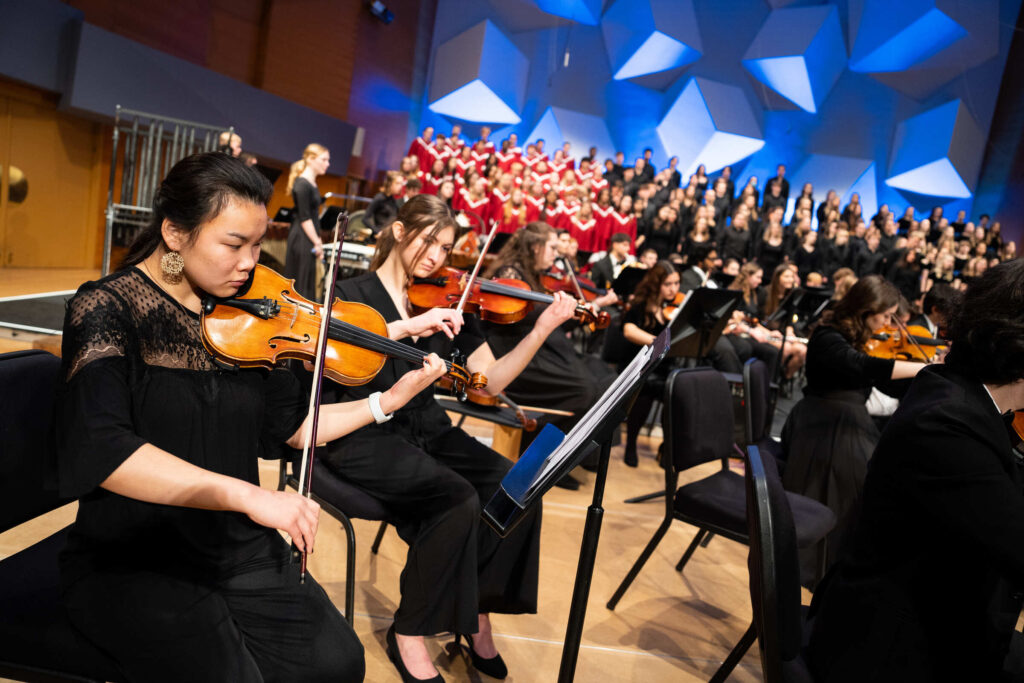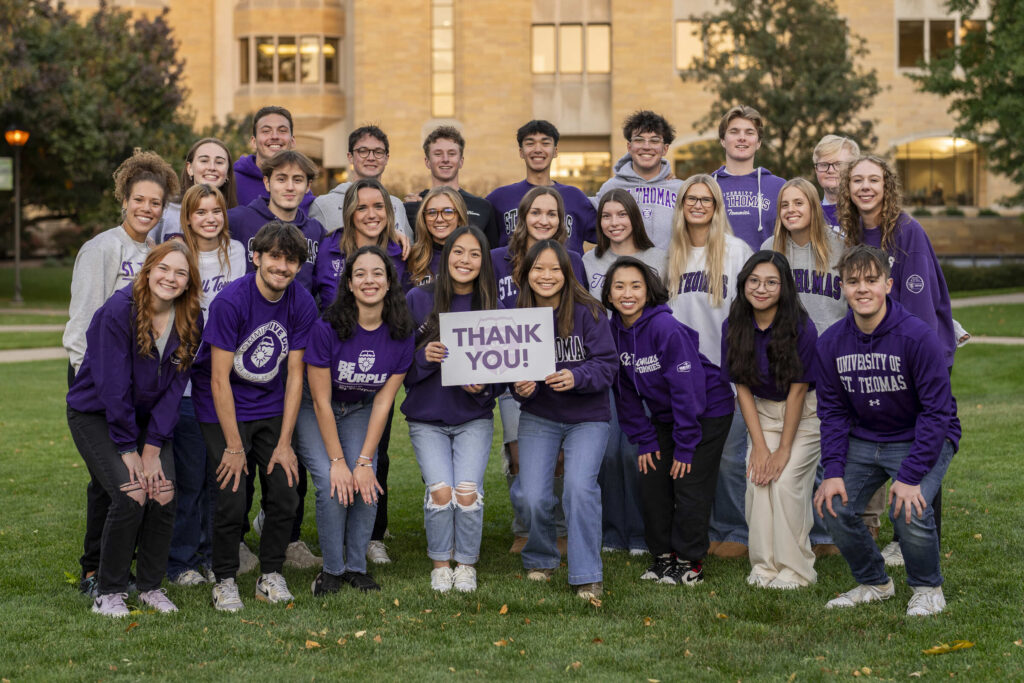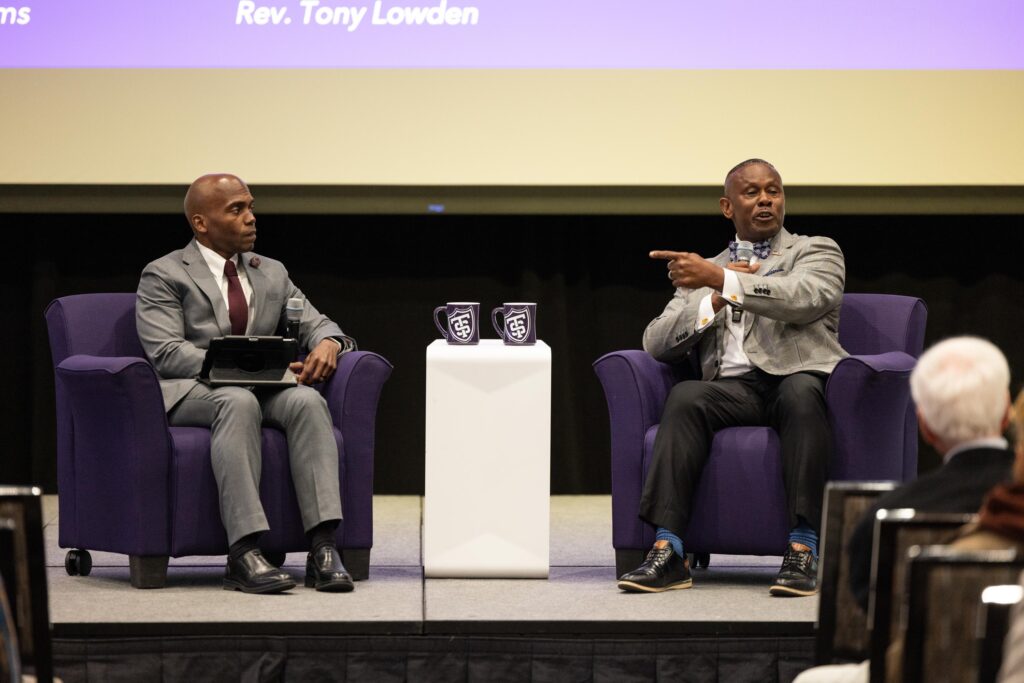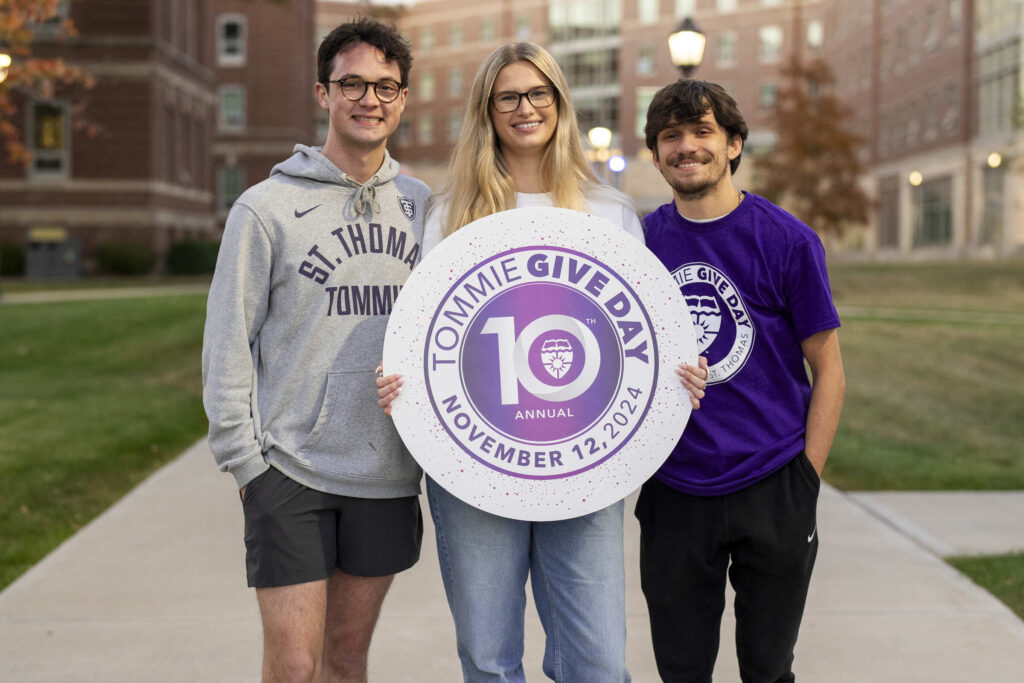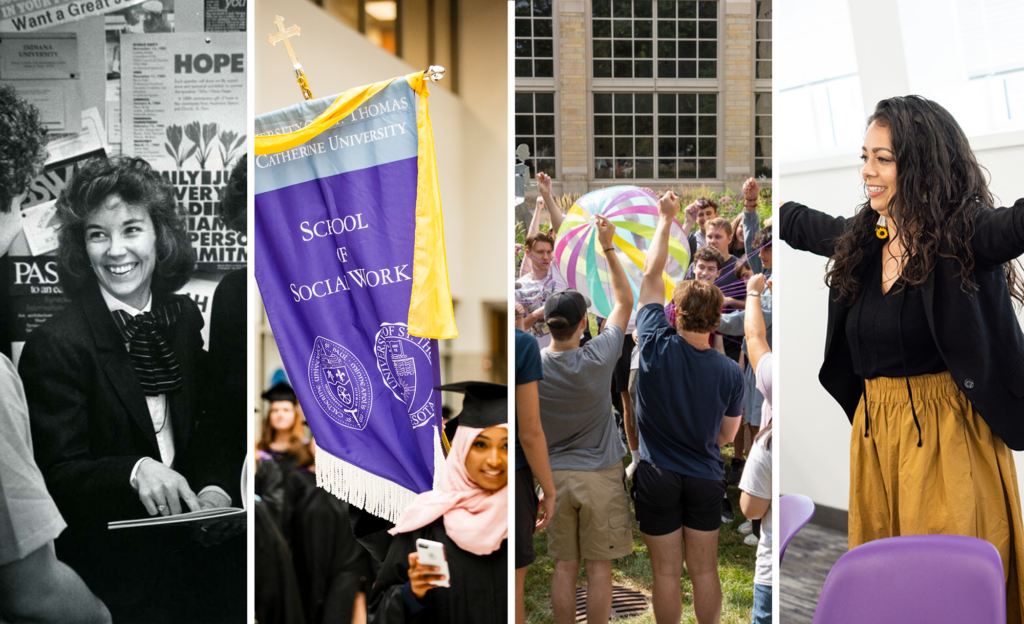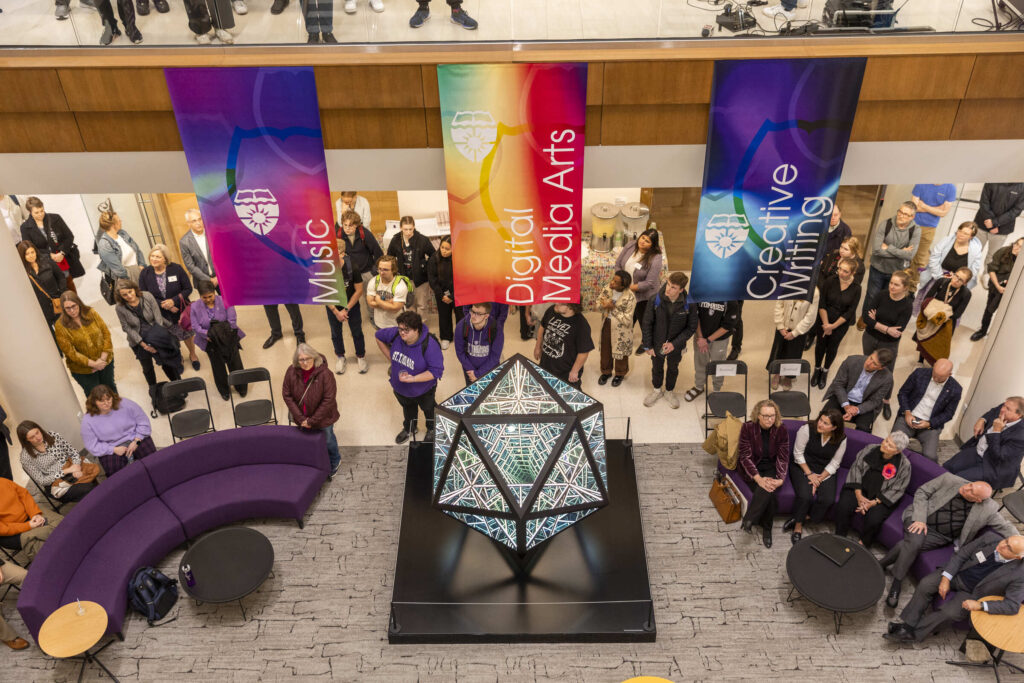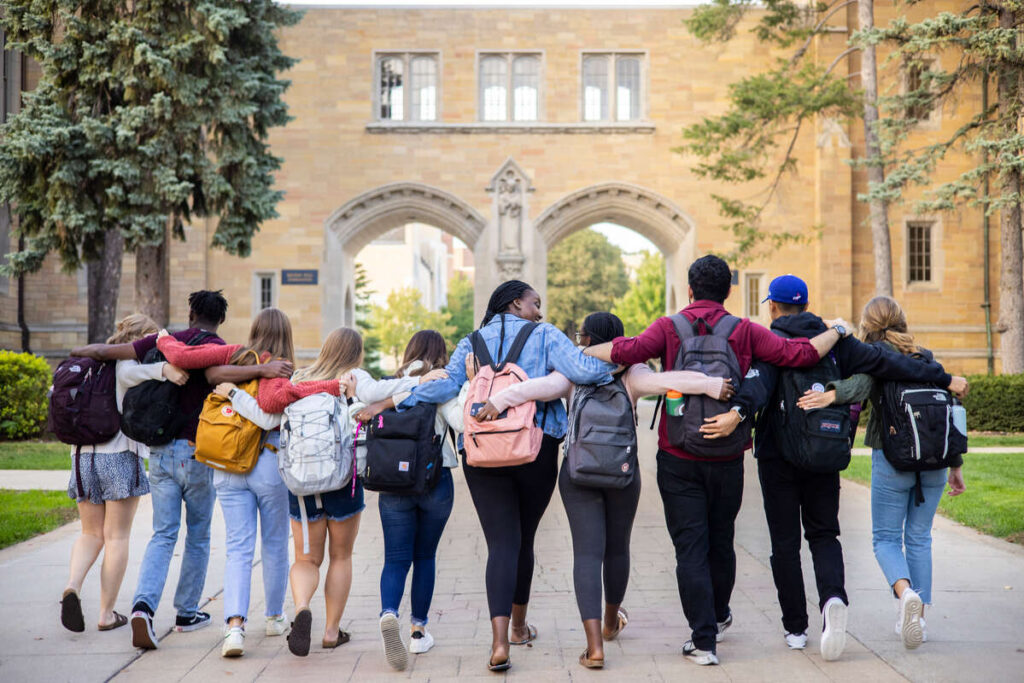The University of St. Thomas has added a new peace engineering minor to continue to meet the growing needs of the engineering field. Peace engineering helps students develop skill sets to look at engineering projects from an intersectional perspective and to provide innovative and sustainable solutions.
"In the past engineering has been considered a technical profession, and we didn't ask some of the bigger holistic questions," said Camille George, associate dean of engineering. "Engineering affects every person. Many items that influence your life were designed by engineers -- your car, your fridge, your phone. How do you engineer across cultures, economic boundaries, resources to capital, and understand reasons that people are in different places than you are in your life?"
Engineering partners with the Justice and Peace Studies Department to consider how engineering projects can be affected by these social disparities, and then to empower those experiencing injustice. This may mean tackling projects related to energy and water resources, the aid of technology in areas of conflict or natural disaster, advocating for public safety in engineering decisions, and agricultural tools to fight poverty and hunger.
In doing so, George believes engineers' ability to be empathetic, think critically and solve problems will be improved.
The new minor will consist of taking classes housed within the Justice and Peace Studies Department and completing a capstone project.
While the minor is a way of formalizing St. Thomas' commitment to peace engineering, the university has a long history of projects done in the vein of peace engineering. Past projects have included improving how to dry breadfruit in several developing nations and how to better turn sorghum into syrup in West Africa. Both projects empower locals to more effectively harvest natural resources to support themselves and their families.
Another project entailed designing a solar-powered picnic table for the city of Elk River.
George believes collaboration and continued community partnerships are vital to the minor. In a pilot program for the minor, students this summer will travel to Jordan to brainstorm how to more effectively dry yogurt that is sold as a starter for many dishes in the region.
"Changemaking is important to teach our students – that everyone can contribute to making a new world," George said.
